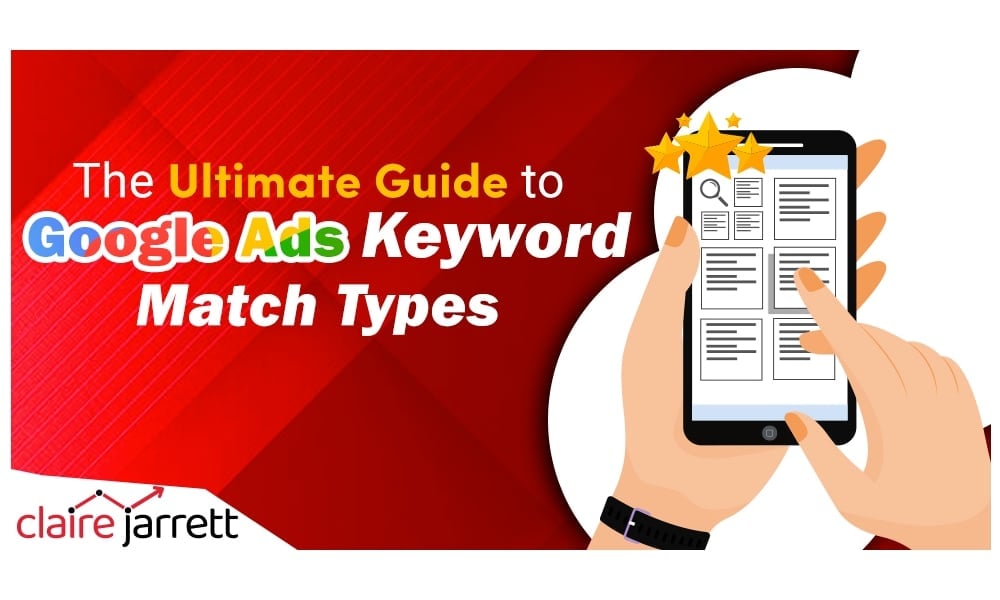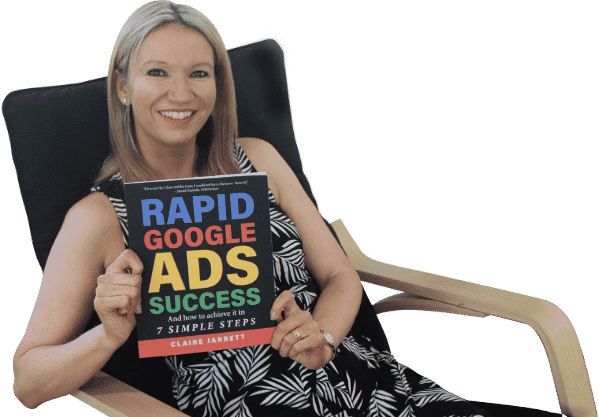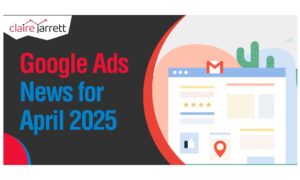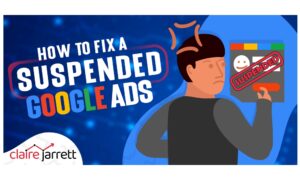The Ultimate Guide to Google Ads Keyword Match Types

Last Updated on: 30th June 2025, 10:35 am
Just because you found the right keywords doesn’t mean you’ll successfully reach your audience. For that, you’ll need to consider Google Ads keyword match types.
Today, I’ll show you how to leverage each of the three keyword match types to make your Google Ads highly profitable.
Let’s dive in!
How Keyword Match Types Dictate Your PPC Success
When creating your campaigns, you select sets of search terms, i.e. keywords, that your ideal prospect needs to search for to see your ad. Now, this happens at the base level.
The second step is choosing whether you want to stay fully committed to these keywords or allow Google to display your ads for other, similar queries. The Google Ad(Word)s keyword match types dictate how closely the keyword should match the searcher’s query.
It’s the keyword match types that can make or break your campaign. They control your lead quality; do you only want your ideal prospects because you understand the exact search terms they look up? Or do you want to cast a broader net, knowing that you might reach low-quality leads, too?
If your Cost Per Acquisition is low, you might experiment with the broad match type. But if you’re in an industry with a high Cost Per Click and Cost Per Acquisition, you must run a tight ship with Google Ads exact match keyword type.
I understand this may all sound nebulous, so let’s look at the three Google AdWords keyword match types and common examples:
1. Broad Match Keywords on Google Ads & Examples
Suppose you want to target “accountants in London” as your keyword.
Google Ads’ broad keyword match type would automatically expand your targeting. Your ad would appear for other search terms Google’s AI believes to be relevant (based on the searcher’s activities, your landing page, and other target keywords), as announced in 2022.
Main keyword: Accountants in London
Broad match keywords:
- Compare accountants near you
- Tax accountants in London
- Accounting prices London
Pros & Cons of Using the Broad Match Keyword Targeting in Google AdWords
You can see how broad match can be imprecise, especially when you want as many top-quality leads as possible for your budget. You get very little control over the keywords your ad appears for, but you can use Smart Bidding so Google can adjust the bids based on the success likelihood.
However, broad match can be a good option to increase your reach when implemented by a seasoned Google Ads expert. It typically gets the best results in B2C, where acquisition costs are low, or where your brand names are concerned.
Google Ads’ broad keyword match is also helpful in experiments to identify the top-performing keywords or new search terms.

2. Phrase Match Keywords on Google AdWords & Examples
On the other hand, Google Ads phrase match displays your ads for search queries that include your specific main keyword (defined by quotation marks). However, everything else is up to your landing page and the searcher’s previous activity.
Main keyword:
- “Rucksacks”
Phrase match keywords:
- Best rucksacks for sale
- Day rucksacks
- Hiking rucksacks
You wouldn’t see synonyms like the American version of “backpack,” nor would your query be expanded to terms like: “What’s the best climbing rucksack?”
Pros & Cons of Using the Phrase Keyword Match on Google Ads
Compared to broad match, Google Ads phrase keyword match type is more specific.
At the same time, it’s not as limiting as exact match, so you’ll be able to target long-tail queries.
You can significantly increase your ads’ reach if you understand your target audience well enough (and your negative keywords list is sufficiently beefed up).
Still, as with any reach increase, you must maintain control over your lead quality. Phrase match could still match your ads against keywords that may not make sense for your business. For example, “Cheap rucksacks” – even if you sell high-end products.
Make sure you use the right phrase match modifiers and negative keywords.

3. Exact Match Keywords & Examples
Finally, if you’ve found the keywords that deliver the highest-quality leads to your business (and you don’t want to fix something that’s not broken), you can use the Google Ads exact match keywords.
With exact match, your ads will only be shown when a searcher looks for the query you specifically determined or a synonymous query.
Main keyword:
- [Running shoes for women]
Exact match keywords:
- Women’s running shoes
- Women running shoes
- Running shoes women
- Running sneakers for women
Pros & Cons of Using Exact Match Keywords in Google Ads
The key benefit of using exact match is precision. You clearly define which keywords you want to compete for, which is a good idea when launching your first Google Ads campaign or using the Single Keyword Ad Group approach.
However, I frequently recommend exact match to my more experienced PPC consultancy clients, too.
Since they understand their target audience, they know exactly what their ideal customers look for. Exact match keeps them laser-focused on the right people while avoiding time-wasters and low-quality leads.
Of course, exact match is, by default, limiting. If your key goal is expanding your campaign’s reach, Google Ads’ exact match keyword type may stifle you.
When Should You Use Each Google Ads Keyword Match Type?
The answer truly depends on your goals, business maturity, and budget. However, I’ve found the following to be a great cheat sheet in the past 15 years of running a Google Ads management service:
Use broad match on Google Ads if you:
- Want to increase your reach
- Already have a solid negative keywords list
- Don’t mind a few low-quality leads
Use phrase match if you:
- Want to expand beyond your original keyword list
- Added the key negative keywords
- Aren’t in an industry with a sky-high CPA
Use exact match if you:
- Understand exactly what your ideal audience is searching for through keyword and buyer’s journey research
- Have a high Cost Per Acquisition
- Are new to Google Ads and don’t want to waste a single penny in your budget
Ultimately, your keyword match type is something to consult a seasoned Google Ads consultant about. As a part of how you target and reach customers, it’s imperative that you choose the right keyword match type for your goals.
If you need expert guidance, I’d love to help! I’d like to apply 15 years of Google Ads expertise to your account.
But if you want to launch your first campaign profitably, get your copy of my best-selling Google Ads book. It will walk you through the 7 rapid steps to set up and run a successful campaign!






